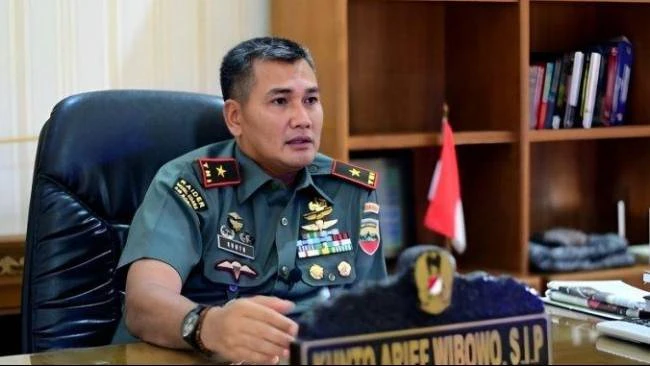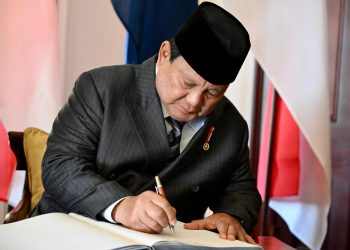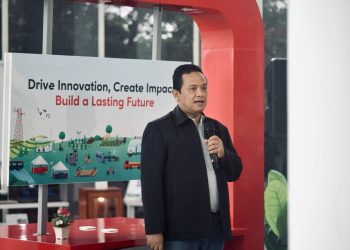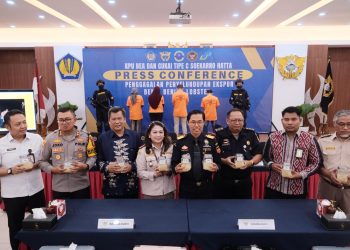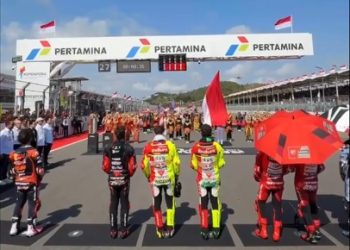Jakarta, Indonesia Sentinel — Indonesian President Prabowo Subianto has canceled a controversial military reassignment that would have removed Lieutenant General Kunto Arief Wibowo from a key strategic command post, signaling a push to assert civilian supremacy over the armed forces amid a contentious political transition.
The aborted transfer, initially approved during the final weeks of former President Joko Widodo’s administration, would have moved Kunto from his role as Commander of the Joint Defense Area Command I (Pangkogabwilhan I) to a largely ceremonial position as a special staff member to the Army Chief of Staff.
Observers say the move raised red flags over political interference in the Indonesian National Armed Forces (TNI), particularly given Kunto’s family background. He is the son of former Vice President and retired General Try Sutrisno, a vocal critic of Vice President Gibran Rakabuming Raka — President Widodo’s eldest son — whose 2024 candidacy was itself mired in constitutional controversy.
President Prabowo swift reversal of the transfer has been interpreted as an attempt to draw a firm line between military professionalism and political maneuvering.
“This is not just about a personnel decision,” said Beathor Suryadi, a senior politician from the Indonesian Democratic Party of Struggle (PDIP). “This is about whether the military will remain a tool of the previous regime’s influence.”
Beathor described the initial transfer as a “silent coup,” accusing figures close to Widodo — including the current TNI Commander General Agus Subiyanto — of trying to secure key posts for loyalists in order to protect Gibran’s position. “The military commander is now part of the so-called ‘Solo Clique,’” he told Radar Aktual, referring to the Widodo family’s hometown in Central Java.
President Prabowo, a former general himself and longtime rival of Widodo before aligning with him in 2019, reportedly acted immediately upon learning of the transfer. Kunto remains in his command position, which oversees key defense operations in western Indonesia, including the capital Jakarta and the South China Sea.
The president’s decision marks a rare public intervention in military appointments and underscores the continuing struggle for influence between Indonesia’s outgoing and incoming leaders.
According to Beathor, the reassignment attempt reveals the existence of a “shadow structure” within the TNI that continues to operate under Jokowi’s influence, even after his term officially ended. “If personnel changes like this can happen without the president’s knowledge, it suggests the chain of command has been compromised,” he said.
The episode has reignited debate over the politicization of Indonesia’s military, an institution still grappling with its legacy of political involvement from the Suharto-era dictatorship that ended in 1998. During Widodo’s two terms in office, several key military appointments were seen as favoring loyalty over merit.
“Prabowo is now facing the difficult task of restoring a clear, constitutionally grounded chain of command,” said political analyst Bivitri Susanti. “This could define his early presidency.”
Read Also:
President Prabowo Makes Historic May Day Pledge to Workers, Unveils Five Key Commitments
Jakarta Governor Plans to Create a “Cat Island” in Thousand Islands
Try Sutrisno, Kunto’s father, has previously stated that Gibran’s vice presidency should be nullified due to procedural irregularities and age limit exemptions granted by the Constitutional Court under questionable circumstances. The perception that the Widodo family is using back channels to maintain political control has fueled concerns about democratic backsliding in Southeast Asia’s largest democracy.
Beathor argued that the effort to sideline Kunto was part of a broader pattern in which Jokowi sought to embed loyalists across key state institutions — not with tanks or guns, but with influence and political pressure. “This is a new kind of coup — a quiet one,” he said.
The controversy over Kunto’s position now becomes a litmus test for Prabowo, who has promised a strong but professional military under civilian leadership. Analysts say whether he succeeds in asserting full control over the armed forces without alienating powerful figures from the previous administration could shape Indonesia’s civil-military relations for years to come.
“This is the first challenge for Prabowo’s presidency,” said Beathor. “Whether or not the TNI can become truly professional again depends on whether the president can resist the lingering influence of his predecessor.”
(Raya)


